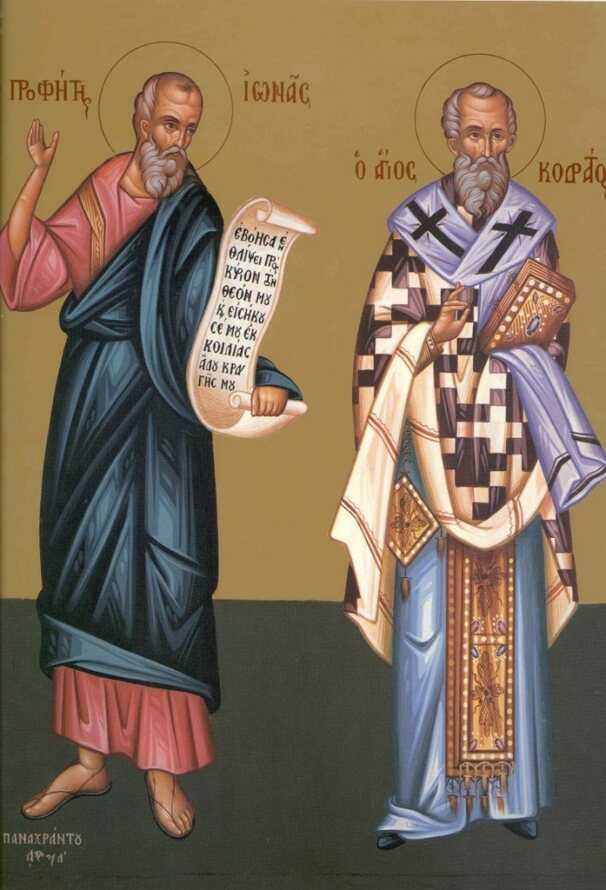Saint Quadratus, Apostle of the Seventy, preached the Word of God at Athens and at Magnesia (eastern peninsula of Thessaly), and was Bishop of Athens. His biographer called him “a morning star” among the clouds of paganism.
He converted many pagans to the true faith in Christ the Savior, and his preaching aroused the hatred of the pagans. Once, an angry mob fell upon the saint to pelt him with stones. Preserved by God, Saint Quadratus remained alive, and they threw him into prison, where he died of starvation. His holy body was buried in Magnesia.
In the year 126, Saint Quadratus wrote an Apologia in defense of Christianity. Presented to the emperor Hadrian (117-138), the Apologia affected the persecution of Christians, since the emperor issued a decree saying that no one should be convicted without just cause.
This Apologia was known to the historian Eusebius in the fourth century.
At the present time, only part of this Apologia survives, quoted by Eusebius: “The deeds of our Savior were always witnessed, because they were true. His healings and raising people from the dead were visible not only when they were healed and raised, but always.
They lived not only during the existence of the Savior upon the earth, but they also remained alive long after His departure. Some, indeed, have survived to our own time.”
Saint Quadratus is also commemorated on January 4.
Troparion — Tone 3
O Holy Apostle Quadratus / pray to our merciful God / that He may grant to our souls / remission of our transgressions.
Prophet Jonah
The Holy Prophet Jonah lived in the eighth century before the birth of Christ and was a successor of the Prophet Elisha. The Book of the Prophet Jonah contains prophecies about the judgments on the Israelite nation, the sufferings of the Savior, the downfall of Jerusalem, and the end of the world. Besides the prophecies, the Book of Jonah relates how he was sent to the Ninevites to preach repentance (Jon. 3: 3-10).
Our Lord Jesus Christ, addressing the Scribes and the Pharisees who demanded a sign from Him, said that no sign would be given except for the sign of the Prophet Jonah, “As Jonah was in the belly of the whale three days and three nights, so also shall the Son of Man be in the heart of the earth three days and three nights” (Mt. 12: 40). From these words the Lord shows clearly the symbolic meaning of the Book of the Prophet Jonah in relation to Christ’s death on the Cross, descent into Hell, and the Resurrection.
Reproaching the lack of penitence and recalcitrance of the Jews, the Lord said, “The Ninevites shall rise in the judgment with this generation and will condemn it, because they repented at the preaching of Jonah; and one greater than Jonah is here” (Mt. 12: 41).
Troparion — Tone 2
We celebrate the memory / of Your prophet Jonah, O Lord; / through him we entreat You, / save our souls.






